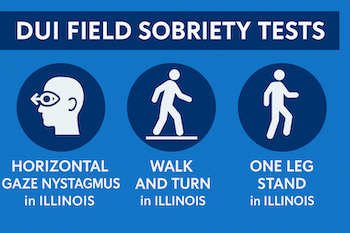 Field sobriety tests (FSTs) are a common tool used by law enforcement in Illinois to assess impairment during DUI stops, but they're far from foolproof and can be effectively challenged in court. As a Will County DUI lawyer with over 20 years of experience, including my time as a former Will County prosecutor, I've helped clients dismantle FST evidence to achieve dismissals or reduced charges. At the Law Office of Jack L. Zaremba, we specialize in scrutinizing every detail of DUI arrests in Joliet and surrounding areas, including how FSTs impact your case and license. In this blog post, we'll examine what FSTs entail, their limitations, common challenges, and defense strategies to protect your rights in 2025. For related insights, check out our posts on Challenging breathalyzer results and Aggravated DUI Defenses
Field sobriety tests (FSTs) are a common tool used by law enforcement in Illinois to assess impairment during DUI stops, but they're far from foolproof and can be effectively challenged in court. As a Will County DUI lawyer with over 20 years of experience, including my time as a former Will County prosecutor, I've helped clients dismantle FST evidence to achieve dismissals or reduced charges. At the Law Office of Jack L. Zaremba, we specialize in scrutinizing every detail of DUI arrests in Joliet and surrounding areas, including how FSTs impact your case and license. In this blog post, we'll examine what FSTs entail, their limitations, common challenges, and defense strategies to protect your rights in 2025. For related insights, check out our posts on Challenging breathalyzer results and Aggravated DUI Defenses
What Are Field Sobriety Tests in Illinois DUI Cases?
Field sobriety tests are roadside exercises administered by officers to gauge a driver's coordination, balance, and attention, helping establish probable cause for a DUI arrest under 625 ILCS 5/11-501. Standardized FSTs approved by the National Highway Traffic Safety Administration (NHTSA) include:
- Horizontal Gaze Nystagmus (HGN): Tracking eye movements for involuntary jerking.
- Walk-and-Turn: Walking heel-to-toe in a straight line and turning.
- One-Leg Stand: Balancing on one foot while counting.
In Will County, officers from departments like the Joliet Police or Illinois State Police often use these during traffic stops on routes like I-80 or Route 59. Non-standardized tests, like alphabet recitation or finger-to-nose, may also be employed but hold less weight in court. In 2025, with increased training mandates, FSTs remain subjective and prone to errors influenced by weather, road conditions, or officer bias. For official NHTSA guidelines on these tests, refer to the NHTSA SFST Training Guide
Limitations and Common Challenges with FSTs
FSTs are not infallible; studies show accuracy rates as low as 65-77% even under ideal conditions, per NHTSA guidelines. Challenges arise from:
- Physical or Medical Conditions: Age, injuries, obesity, or neurological issues can mimic impairment.
- Environmental Factors: Uneven surfaces, poor lighting, or inclement weather in Will County can skew results.
- Improper Administration: Officers must follow NHTSA protocols; deviations, like incorrect instructions or timing, can invalidate tests.
- Subjectivity: Interpretation relies on the officer's judgment, which body cameras can help contest.
Refusing FSTs isn't penalized like breath tests, but it may lead to arrest based on other observations. For drug DUIs, FSTs are less reliable, as cannabis or medications affect performance differently than alcohol.
Defense Strategies Against FST Evidence
A strong defense can suppress or discredit FST results:
- Motion to Suppress: Argue lack of reasonable suspicion for the stop or improper FST administration, excluding evidence.
- Expert Testimony: Use toxicologists or medical experts to explain alternative causes for poor performance.
- Video Review: Analyze dashcam or bodycam footage for inconsistencies in officer conduct or conditions.
- Cross-Examination: Question the officer's training, experience, and adherence to standards in court.
- Negotiate Reductions: Leverage FST weaknesses to plead down to reckless driving, preserving your license.
In a recent Joliet case, we suppressed FST evidence due to an ankle injury, leading to DUI dismissal and avoided suspension. These tactics also aid in license reinstatement hearings post-conviction.
Why Hire a Will County DUI Lawyer for FST Challenges?
FSTs often form the backbone of DUI prosecutions, but experienced counsel can turn their flaws to your advantage. My prosecutorial insight helps anticipate strategies, challenge evidence, and safeguard your driving privileges in Will County courts.
If you're facing DUI charges involving field sobriety tests in Will County, contact the Law Office of Jack L. Zaremba for a free consultation. Visit our https://willcountyduilawyers.com/contact or call our Joliet office to build your defense in 2025. Don't let flawed tests dictate your future—fight back now.

